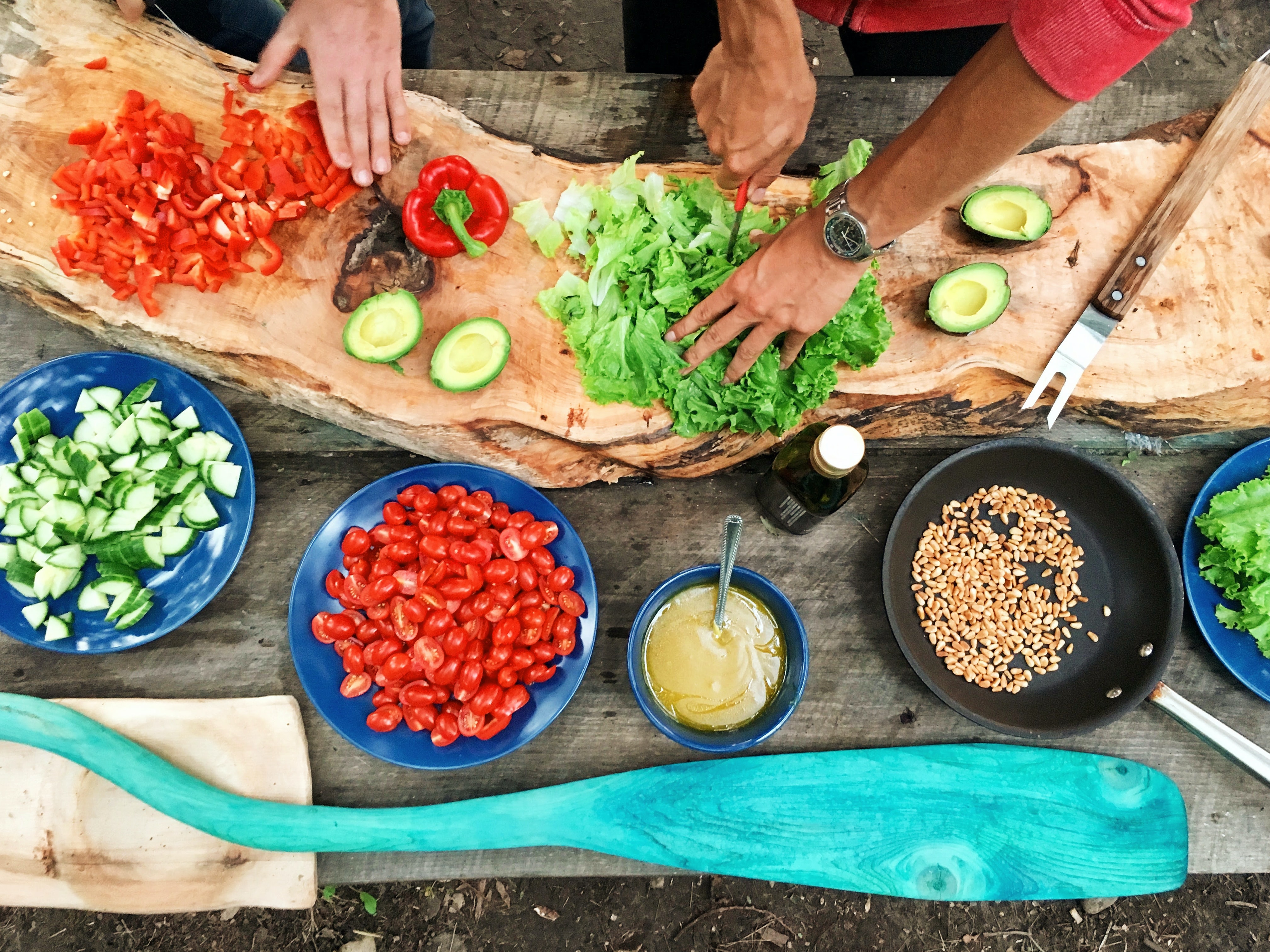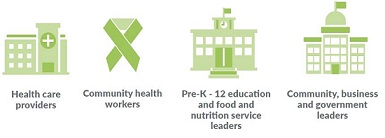Nutrition Oregon Campaign

We all want to live healthy lives, but right now rapidly rising rates of obesity, diabetes and heart disease are leaving lasting impacts on our communities, our workforce, our economy and our future.
Research shows that the seeds of chronic disease are sown before we are even born, and it's based on the environment in which we develop and grow. This includes the quality of nutrition we receive, the toxic stress we’re exposed to and the type of environmental exposures we experience. OHSU has been a leader in this research and understands the need to change the way we view chronic disease risk.
That’s why the OHSU Moore Institute developed the Nutrition Oregon Campaign.
Campaign description
The Nutrition Oregon Campaign is a statewide network of connected communities and like-minded organizations challenging the systemic factors that contribute to chronic disease risk.
The Campaign is grounded in the science of the Developmental Origins of Health and Disease (DOHaD), which shows a clear relationship between early life environment and lifelong chronic disease risk, and how that risk is passed from one generation to the next through gene-environment interactions.
The Nutrition Oregon Campaign is founded on the belief that communities are the experts in developing the interventions that will work to end chronic disease where they live, through a combination of education, intervention, advocacy and capacity-building. The Campaign collaborates with leaders and community-based organizations to develop community-specific goals and projects.
Application for 2025 have been closed!
We are no longer accepting applications for the 2025 cohort, for any questions or inquiries please reach out to Nicky Ulrich.
The Nutrition Oregon Campaign has the following guiding principles:
- Everyone deserves to start life on an equal footing.
- Chronic disease rates will not decrease until we improve the nutrition levels of infants, adolescents and women of childbearing age.
- Communities cannot access healthy nutrition if the built, political and social environments don't support healthy choices.
- Community members best understand the unique structural barriers to nutrition that they face. They should be the driving force in developing the vision and interventions to improve nutrition within their own populations.
- Some groups, especially communities of color and those in rural areas face greater disparities and require extra attention, otherwise the gaps in health outcomes will be even greater.
- If Oregon leaders are knowledgeable about the effects of nutrition on chronic disease risk in this and future generations, they will be motivated to work with the communities they serve to generate solutions.
The Nutrition Oregon Campaign works to establish "hub" communities throughout the state. Hubs are comprised of local organizations, individuals and initiatives within a specific geographic area that are working toward a common vision of eliminating chronic disease in their communities. Hub communities are committed to mobilizing around the science of DOHaD.
Every hub has a local campaign liaison and a leadership team consisting of members from each of the four key sectors. The Moore Institute works as the backbone agency for the hubs, providing access to resources, support and education, as well as developing shared metrics for evaluation.
The NOC is currently working with three hub communities (see also right-hand column):
Western Treasure Valley (Ontario): Established in 2018
Campaign liaison: Lindsay Grosvenor, R.D., Strategic Partnerships Program Manager, Oregon Food Bank - Southeast Oregon Service
"We believe that health is more than the absence of disease. We are committed to creating well-being through nutritious foods. We prioritize prevention for those most impacted by health disparities and chronic disease."
Klamath: Established in 2019
Campaign liaison: Kelsey Mueller, Policy Manager, Healthy Klamath
"We collaborate with all stakeholders that support, educate, and provide care for new mothers and families to improve their level of nutrition through outreach, education, and action."
Yamhill: Established in 2022
Campaign liaison: Olivia Williams, Community Prevention & Wellness Coordinator, Yamhill County Public Health
"We will co-create a culture that values nutrition to ensure that 100% of people who live in Yamhill County can acquire and enjoy food that meets our cultural and nutritional needs by 2029."
Douglas: Established in 2023
Campaign liaison: Alyson Pinkelman, MPH., Public Health Program Coordinator, Community Health, Aviva Health
"We commit to improving lifelong health and wellbeing for this generation and the next by ensuring that all babies in Douglas County are born at a healthy birthweight by 2033."
The Campaign works with four key sectors in each community, to encourage sector leaders to see how poor nutrition and increased chronic disease risk impacts the people they serve. Building the understanding and backing of these leaders supports the on-the-ground work of communities.

- Invite the Moore Institute to your community to host a Nutrition Consortium to discuss DOHaD science, and identify connections between current community projects and the Campaign's objectives.
- Connect Moore Institute staff to leaders within the four key sectors in your community.
- Email us to be added to our list for updates about the campaign, community success stories and opportunities to get involved.
A key component of the Campaign is developing resources that explain the science of DOHaD, the importance of nutrition during pregnancy, lactation, early life and adolescence, and how nutrition provides a foundation for creating healthy communities. Below are a list of resources for the Nutrition Oregon Campaign Hub Communities:
- DOHaD resources
This list of audio, video and print resources highlight different aspects of the science.
- DOHaD causal map
During the campaign's planning phase, collaborators developed this visual representation of the many underlying causes of chronic disease risk.
- Abuela Mama y Yo
A culturally-specific nutrition curriculum grounded in DOHaD for Latinx families produced by Familias en Acción. Training and classes are available in Spanish and English.
- Nutrition in a Box
Nutrition curriculum for students in grades 4-8.
- Evidence-based community interventions
The Robert Wood Johnson Foundation developed the What Works for Health menu of evidence-based programs and policies. The Moore Institute used this database to identify interventions appropriate for communities interested in implementing a community-based project utilizing DOHaD concepts.